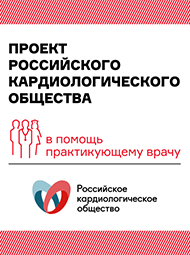Return to Warfarin Okay After TBI?
Restarting warfarin (Coumadin) after a traumatic brain injury (TBI) improved overall outcomes despite the bleeding risk, an observational Medicare study showed.
Hemorrhagic events -- stroke or upper GI, adrenal, or other bleeds -- were 1.51 times more likely with resumption of the blood thinner in the year after TBI than without going back on the drug (95% confidence interval 1.29-1.78), Ilene H. Zuckerman, PharmD, PhD, of the University of Maryland in Baltimore and the public policy research firm IMPAQInternational, and colleagues found.
But the strategy was associated with lower risk of hemorrhagic and ischemic stroke together, with a net reduction in relative risk to 0.83 compared with no warfarin after discharge for TBI (95% CI 0.72-0.96), the researchers reported in the August issue of JAMA Internal Medicine.
"These effects did not change significantly over time, suggesting that barring strong contraindication, most patients would benefit, in terms of a reduction in the risk of stroke, from resuming warfarin therapy immediately following hospital discharge for TBI," they wrote.
However, in the analysis, only 55% of Medicare patients who sustained TBI and had been on warfarin in the month prior to the injury went back on it within the year afterward.
The researchers called this rate too low, especially given that 82% of the population had atrial fibrillation.
The study included 10,782 Medicare beneficiaries ages 65 and older on warfarin in the month prior to hospitalization for TBI from 2006 through 2009. The analysis looked at the lagged association of post-TBI warfarin use with outcomes in the subsequent 30 days.
As expected, warfarin resumption was associated with decreased risk of thrombotic events -- ischemic stroke, pulmonary embolism, deep venous thrombosis, or myocardial infarction -- for a relative risk of 0.77 (95% CI 0.67-0.88).
Hemorrhagic stroke risk was actually lower among patients who went back on warfarin (RR 0.70, 95% CI 0.52-0.95), which the researchers called "likely due to residual confounding by indication, even though we controlled for comorbid conditions associated with increased risk of hemorrhage and used inverse probability of treatment weights to reduce selection bias.
"Uncontrolled hypertension, a major risk factor for hemorrhagic stroke, may have been an important but unmeasured potential confounder. Nonetheless, resumption of warfarin therapy following TBI was not associated with an increased risk of hemorrhagic stroke."
The researchers cautioned about the limitations of administrative data used in the study, inability to assess aspirin use, and use of proxies for TBI severity.
The analysis did not compare mortality rates between warfarin groups.
Source: www.medpagetoday.com






